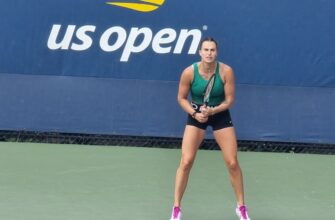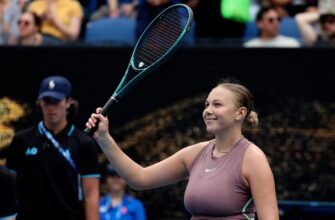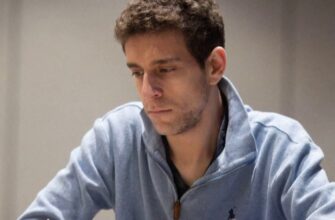As the ATP Tour calendar winds down, the race for the coveted ATP Finals spots in Turin intensifies. Every match carries profound weight, every victory a step closer to the season-ending showpiece. Currently ranked 10th in the world and sitting 15th in the ATP Race, Karen Khachanov offers a refreshingly frank perspective on his pursuit of this prestigious qualification, balancing unwavering ambition with a pragmatic approach to the immense pressure that comes with it.
The Mental Game: Goal Setting vs. Self-Imposed Pressure
For Khachanov, the dream of competing among the elite eight in Turin is very much alive. “Of course, it`s in my head,” he confirmed, acknowledging he keeps a close eye on the standings. However, his philosophy extends beyond mere aspiration. He stresses that true progress hinges on the fundamental quality of his game. “The question always comes back to the actual game itself. If the game is there, if the level is there, then you can count on reaching the later stages.”
This seasoned perspective highlights a crucial distinction in the high-stakes world of professional tennis. Khachanov articulates it with clarity: “It`s one thing to set a goal and strive for it. It`s another thing when you lose your mind and can`t find peace because you desperately want to achieve it.” For him, the objective is to strike a delicate balance, allowing the goal to inspire without becoming an undue source of mental burden. A subtle, yet critical, difference that often separates sustained performance from emotional burnout.
Weathering the Storm: Fatigue and the Weekly Reset
Khachanov openly concedes that his recent tournaments haven`t been “very successful.” Yet, he views these setbacks not as roadblocks, but as valuable data points. He attributes a potential dip in form to accumulated fatigue – both mental and physical – stemming from a relentless schedule that saw him playing continuously from the clay court season right through to the end of summer. “You have to consider that a small slump will inevitably occur at some point,” he noted, a realistic assessment in a sport that demands peak physical and mental conditioning almost year-round.
However, tennis, in its unique and unforgiving structure, also offers a perpetual opportunity for redemption. “Tennis is so unique that you have the chance to change everything every week,” Khachanov emphasized. This perspective allows players to quickly pivot from disappointment, learning from past results while immediately focusing on the next challenge. It`s a professional athlete`s version of a quick reboot, always hopeful for better performance in the next update.
The Alternate Question: A Pragmatic Stance
In a world where athletes are often portrayed as maximalists, a question arose regarding the possibility of finishing just outside the top eight, perhaps as an alternate for the ATP Finals. This query came with a playful nod to Daniil Medvedev`s previous emphatic declaration that he would not travel to Turin as a reserve after a frustrating loss in Shanghai.
Khachanov, with characteristic practicality, simply deferred. “We`ll see. Let me get there first, and then we`ll decide.” He chose to invoke a classic Russian proverb: “Don`t divide the bear`s skin until it`s caught.” This measured response stands in subtle contrast to the more emotionally charged pronouncements sometimes heard from his peers. It’s a testament to his focus on the present, avoiding hypothetical scenarios that might distract from the immediate task at hand. One might even detect a touch of quiet irony in his refusal to engage with such speculative dramatics.
Looking Ahead: The Unyielding Pursuit
As the final stretch of the season approaches, Karen Khachanov remains resolute. His journey to the ATP Finals, while challenging, is guided by a clear vision: prioritize game quality, manage pressure judiciously, and seize the weekly opportunities for improvement. His candid reflections paint a picture of an athlete deeply committed to his craft, navigating the complex interplay of ambition, performance, and the psychological demands of elite professional tennis. Whether Turin awaits him this year or not, his balanced approach is a masterclass in professional resilience.








